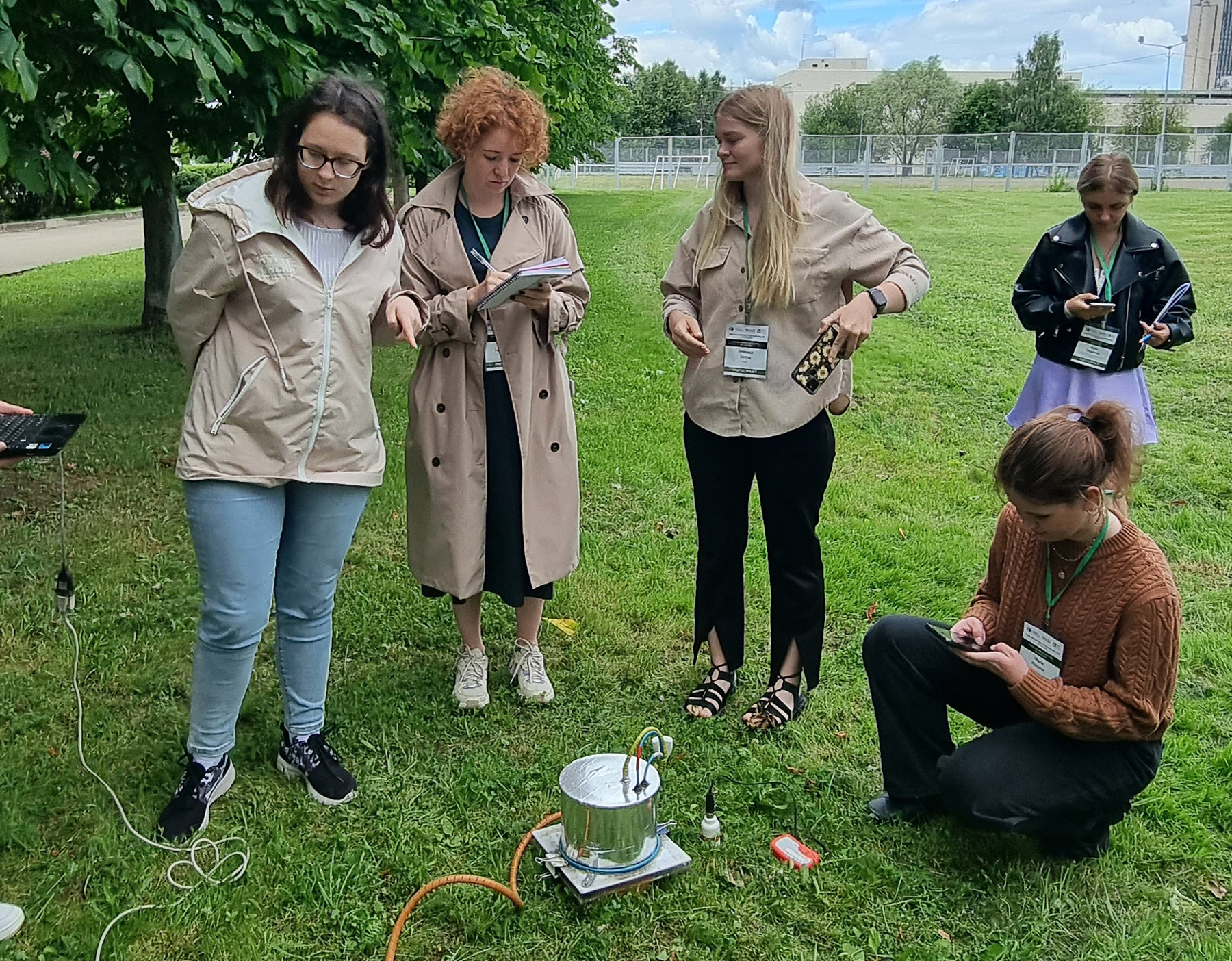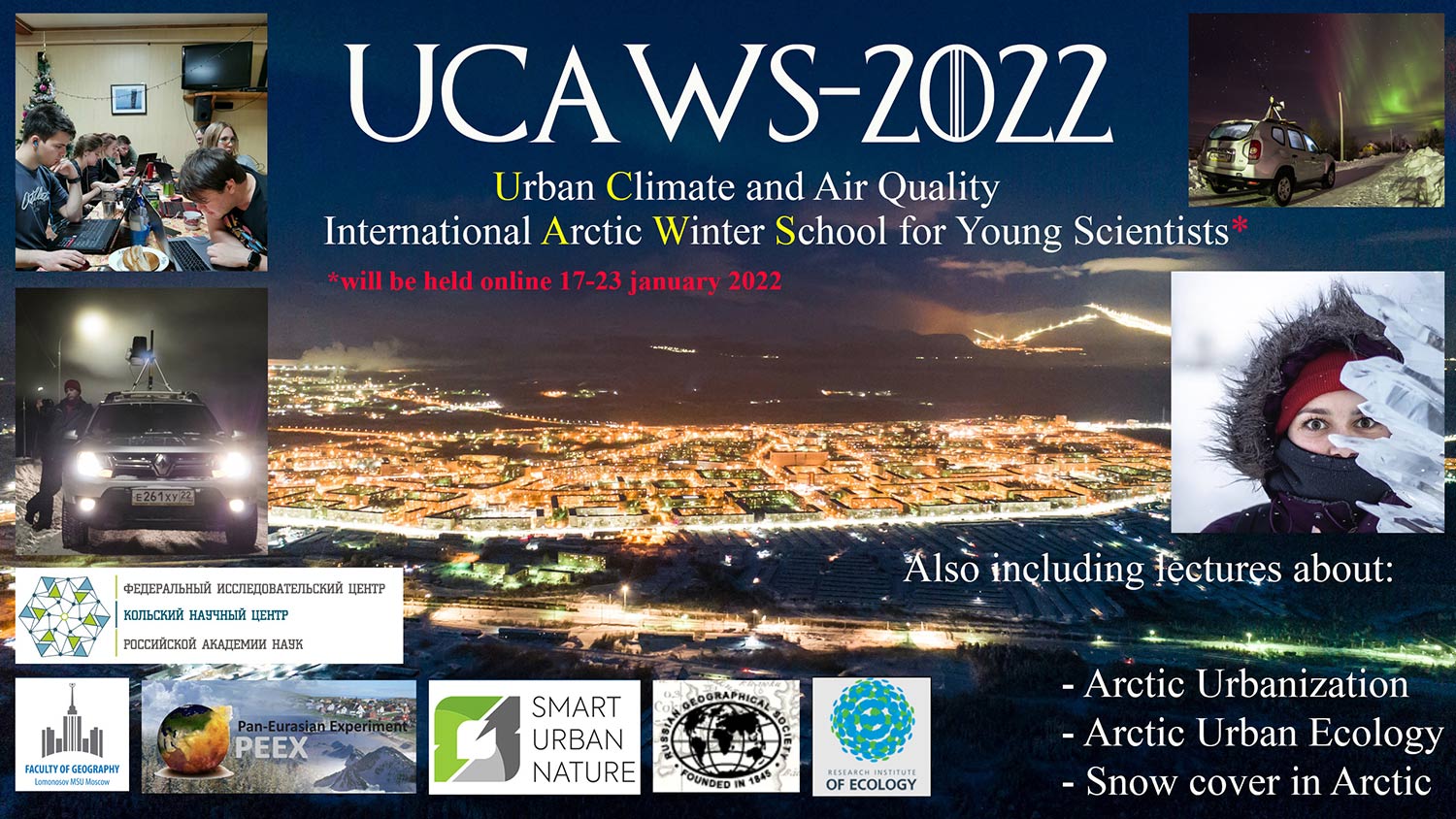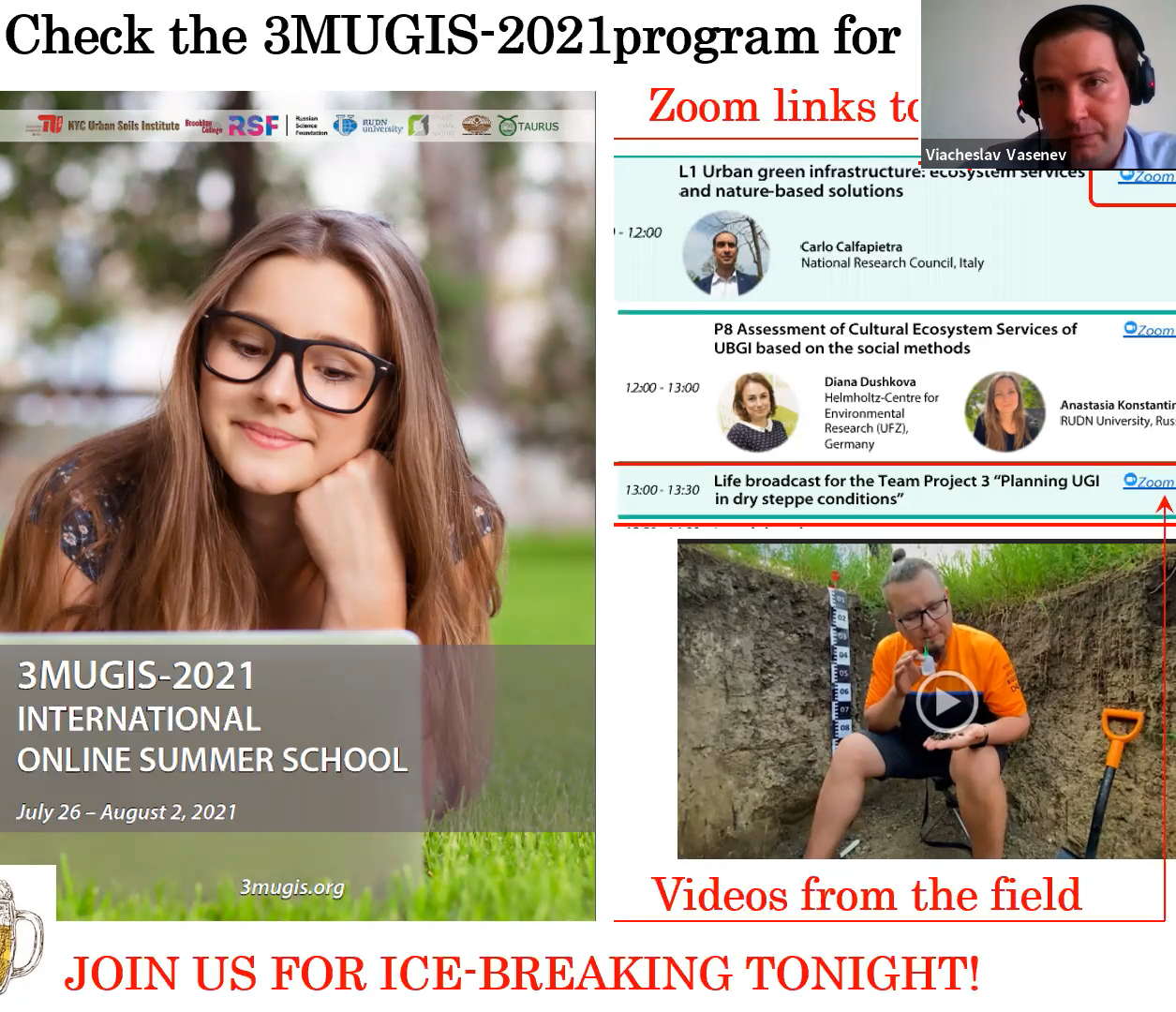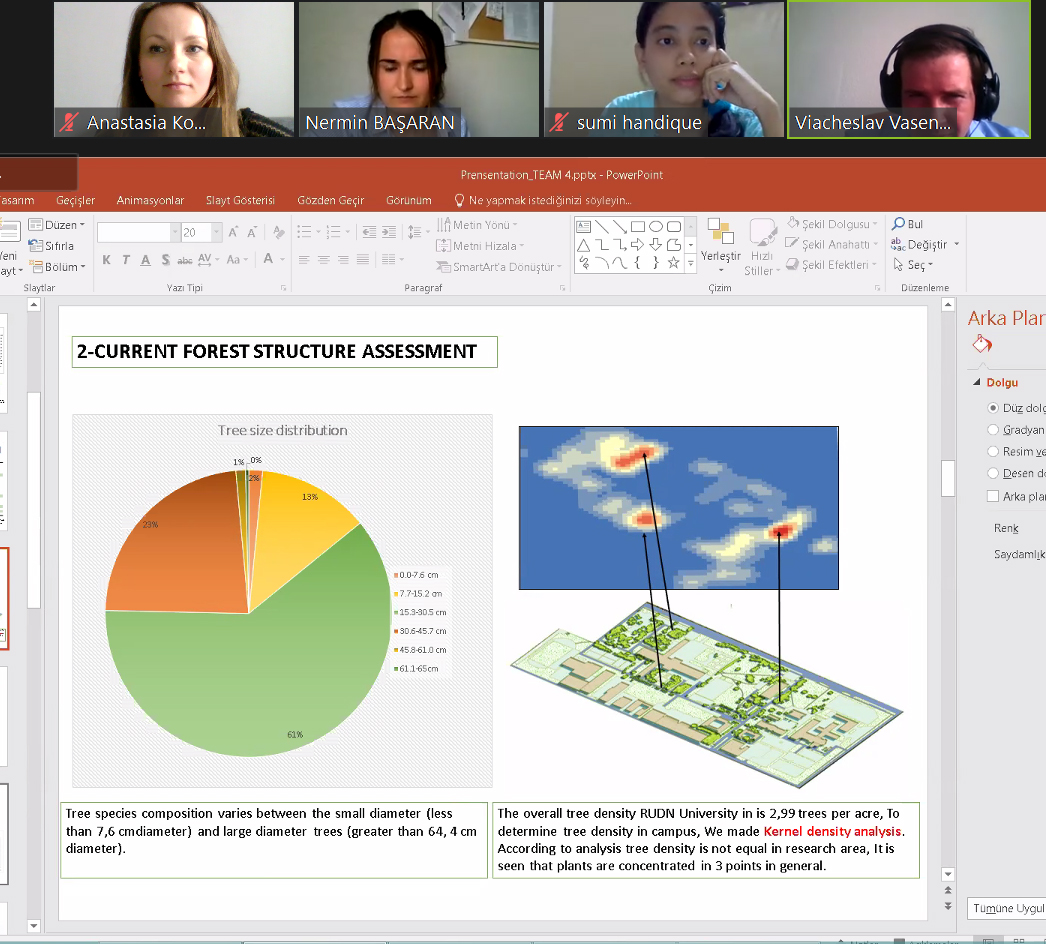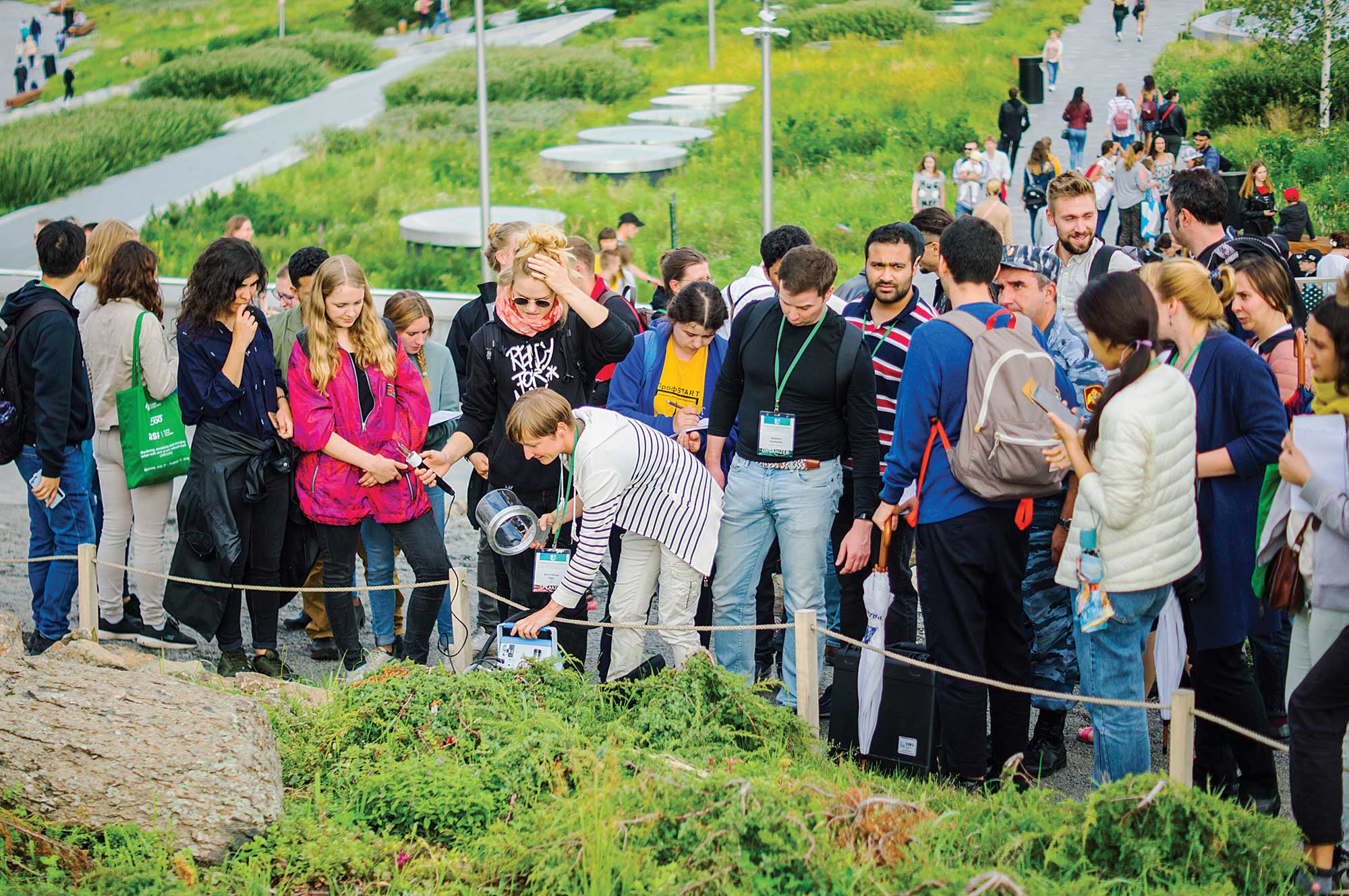In July 18—22, 2022, the 6th International Summer School 3MUGIS (Monitoring, Modeling and Managing Urban Soils and Green Infrastructure) was held within the Department of Landscape Design and Sustainable Ecosystems of the RUDN University. The school was organized with the support of the Russian Science Foundation and under the umbrella of the International Union of Soil Scientists and the Institute of Urban Soils of New York in collaboration with universities, scientific organizations and research groups from around the world. The partners of the school were Brooklyn College (USA), Kola Science Center of the Russian Academy of Sciences, Southern Federal University and many others. All the organizers and partners of 3MUGIS are united by the desire to exchange knowledge, ideas and experience at the international level.
SUN Lab scientists took part in organizing international winter school on urban climate
In January 2022, the first experimental international winter school for young scientists “Urban Climate and Air Quality Winter School (UCAWS-2022)” was successfully held at the Khibiny educational and scientific base of Moscow State University in Murmansk region. The school was designed for senior students, masters, graduate students and young scientists under 40 who are interested in the problems of urban climatology, urban air quality, urban studies, urban ecology in relation to the cities of the Eastern and Western Arctic. This topic is extremely promising in recent decades, especially in the light of Russia’s chairmanship of the Arctic Council in 2021–2023.
Studying urban soils and green infrastructure: the fifth 3MUGIS-2021 summer school took place online
From July 26 to August 2, 2021, the 5th International Summer School 3MUGIS (Monitoring, Modeling and Managing Urban Soils and Green Infrastructure) was held within the Department of Landscape Design and Sustainable Ecosystems Smart Urban Nature Laboratory of the RUDN University. The school was organized with the support of the Russian Science Foundation and under the umbrella of the International Union of Soil Scientists, RUDN University and the Institute of Urban Soils of New York in collaboration with universities, scientific organizations and research groups from around the world. The partners of the school were Brooklyn College (USA), Kola Science Center of the Russian Academy of Sciences, Southern Federal University and many others. Importantly, all the organizers and partners of 3MUGIS are united by the desire to exchange knowledge, ideas and experience at the international level.
Studying urban soils and green infrastructure: the fourth 3MUGIS-2020 summer school took place online
From July 3-13, 2020, the IV International Summer School 3MUGIS (Monitoring, Modeling and Managing Urban Soils and Green Infrastructure) was held on the basis of the Department of Landscape Design and Sustainable Ecosystems at RUDN University. The school is organized with the support of the Russian Science Foundation (RSF) and under the umbrella of the International Union of Soil Scientists (IUSS) and the New York City Soil Institute in collaboration with universities, research institutions and research groups from around the world.
Participants of the 3MUGIS RUDN Summer School studied the sights and soils of Russia
July 27 – August 10, 2019 the III field international summer school “Anthropogenic and natural landscapes and soils of European Russia: from sea to sea” took place in RUDN University. School was held jointly with scientific and educational institutions of Russia, Germany and the USA.
This year, 50 participants represented Russia, Germany, Italy, China, the USA, Chile and France. In two weeks, they crossed the entire European part of Russia from the Barents Sea to the Sea of Azov in order to study zonal diversity and evaluate the results of anthropogenic impact on the ecosystems.

